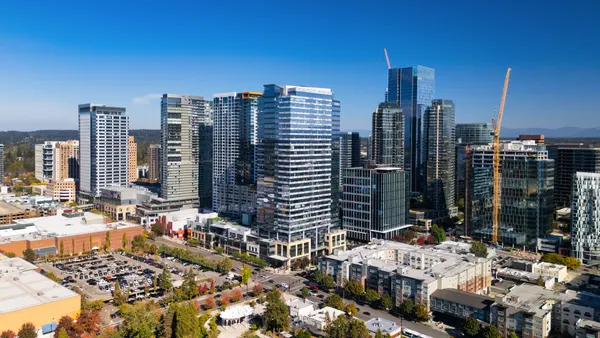Dive Brief:
- After unanimous city council approval, Boston Mayor Marty Walsh last week passed a ban on government use of facial recognition technology, making Boston the largest East Coast city to restrict the tech.
- The order bars any city government official or agency from using a facial recognition system or information gained through one, and prevents arrangements with third parties using facial recognition. It does contain an exemption for some investigative purposes, allowing the police to use evidence obtained through facial recognition as long as it was not "generated by or at the request of Boston or any Boston official."
- The Boston Police Department had not been using facial recognition technology, and Police Commissioner William Gross said at a public hearing that he did not want to use it until it was "100%" reliable, according to WBUR.
Dive Insight:
As the use of facial recognition technology has expanded around the country in recent years — finding use in everything from law enforcement to airport check-ins — so have concerns about its potential civil rights and privacy impacts. A federal study from the National Institute of Standards and Technology found that the top algorithms misidentify people of color at higher rates than white people, and other studies have found that existing systems have trouble distinguishing Black faces.
The national conversation around policing following the death of George Floyd in May has included a reckoning on the potential inequities in facial recognition, even prompting Amazon and Microsoft to put a temporary moratorium on law enforcement use of their facial recognition software. Boston city councilmember Michelle Wu, one of the sponsors of the city’s ban, said the national debate contributed to the bill’s "accelerated timeline," from introduction in early May to passage by the end of June.
"This was a way to make sure we are proactively protecting fundamental civil liberties and guarding against injustice to our communities of color," Wu told Smart Cities Dive. Wu has also introduced an ordinance that would require city agencies to develop a policy for data retention and privacy before purchasing any new surveillance technology, but that has not made it to a vote.
Another factor in the quick passage was that the police department’s contract with video analytics software BriefCam was expiring, and the department had the option to renew with facial recognition tools. The city said publicly it was not using the technology, even as other law enforcement agencies have explored its use to track suspects or as a crowd control measure.
San Francisco and Oakland, CA are among the other major cities that have passed facial recognition bans, and at least five other Massachusetts cities — including Somerville, Cambridge and Brookline — have passed them. Massachusetts Sen. Cynthia Stone Creem, D, introduced a bill to impose a statewide moratorium, which would make Massachusetts the first state with a ban.
"The government’s unregulated use of this technology raises significant concerns and the adoption of bans by large cities like Boston shows that there is strong public support for 'pressing pause' on its use," said Creem in an email. "These bans or moratoriums are critical to protect civil rights and civil liberties and to support racial justice."











